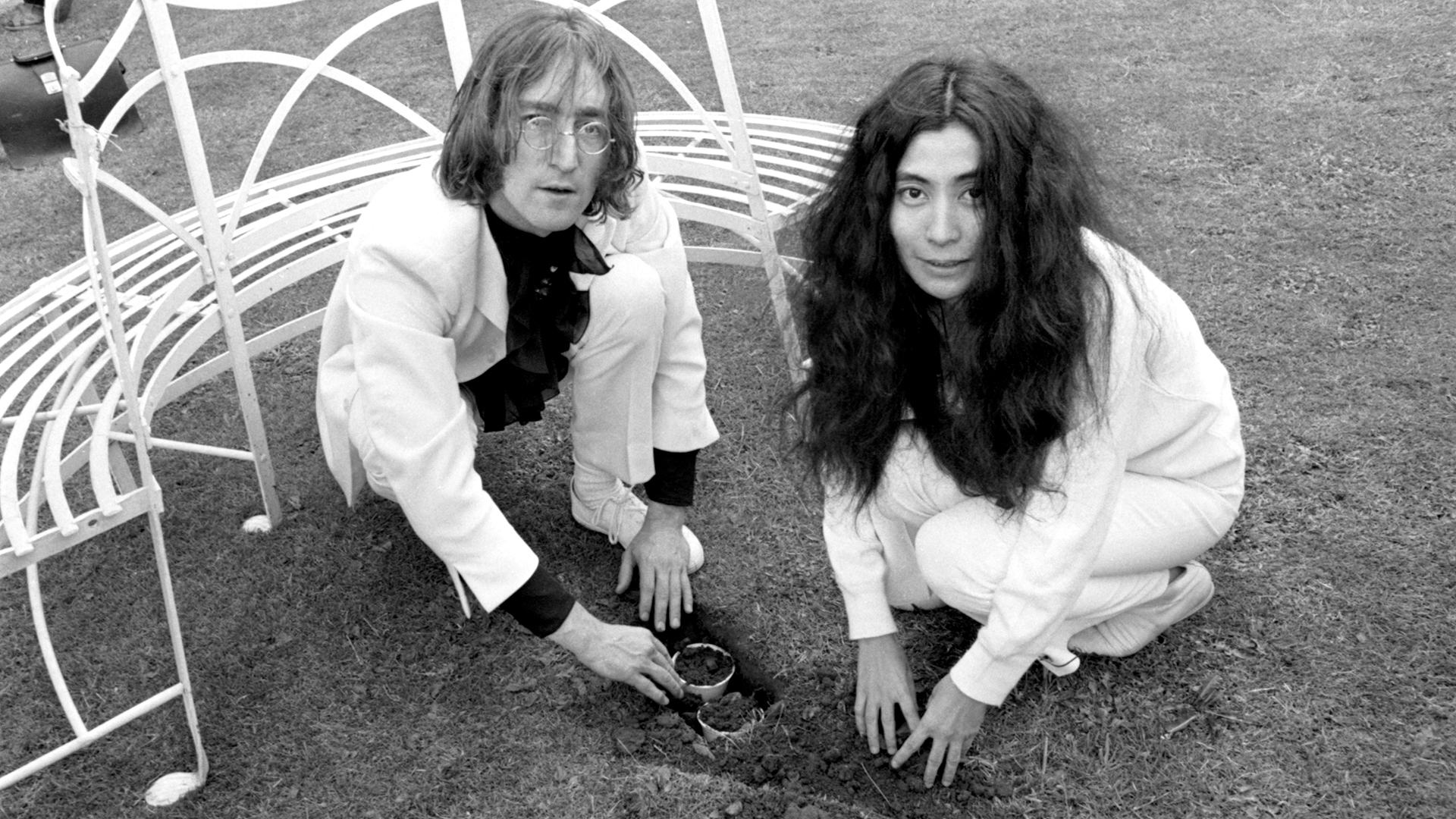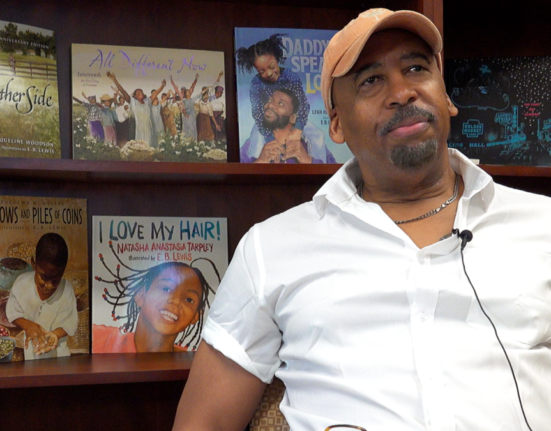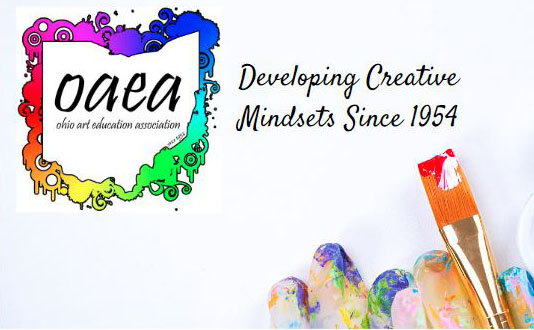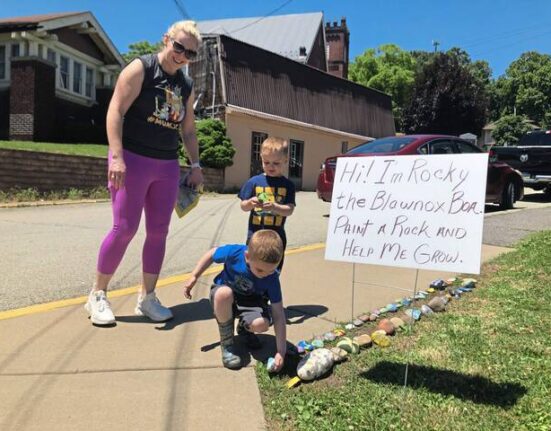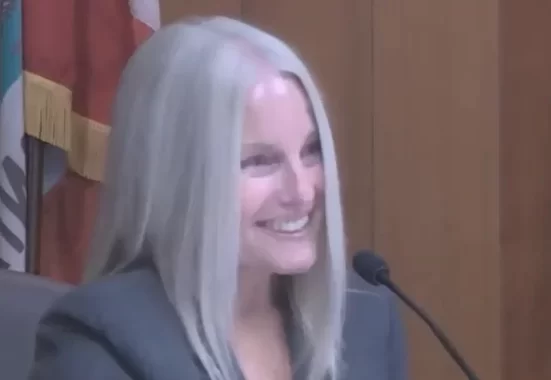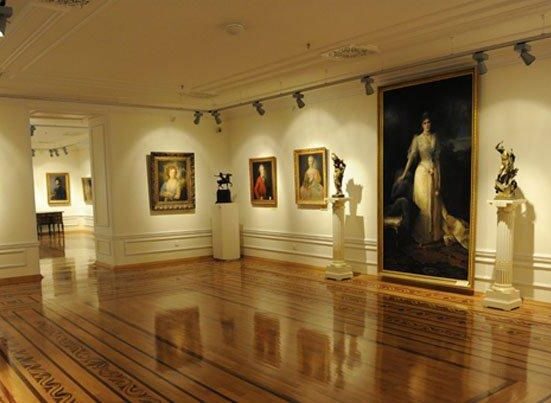Ultimately Ono’s desire is for people to come together and imagine a more hopeful future, because, as she and Lennon put it: “A dream you dream alone is only a dream. A dream you dream together is reality.”
Planting a seed for abetter future
In 1968, Yoko Ono and John Lennon had been together for just a few months when they created their first joint work (main image, above). Appearing for the first time as a couple at Britain’s first National Sculpture Exhibition, they planted two acorns in the grounds of Coventry Cathedral. One faced east, one west, to represent each of their heritages. A bench sat alongside, where they invited visitors to sit and watch the acorn trees growing, while thinking about world peace.
Right from the start, says de Brún, “they were really trying to use their public platform to create a sense of potential for world peace.”
Following their marriage, the couple decided to take the idea to the halls of power. They mailed acorns to 96 world leaders, asking them to plant the seeds in their own gardens and consider world peace. “As part of the exhibition, we’ve got a lot of the original material, examples of what they’d send out to the world leaders,” says de Brún. “And we’ve got these really fascinating responses from world leaders as well, thanking them for what John and Yoko would call the ‘living sculptures’.” Interestingly, many of the world leaders said they had planted the acorns. They have not yet achieved world peace.
‘This society is the very society that killed female freedom‘
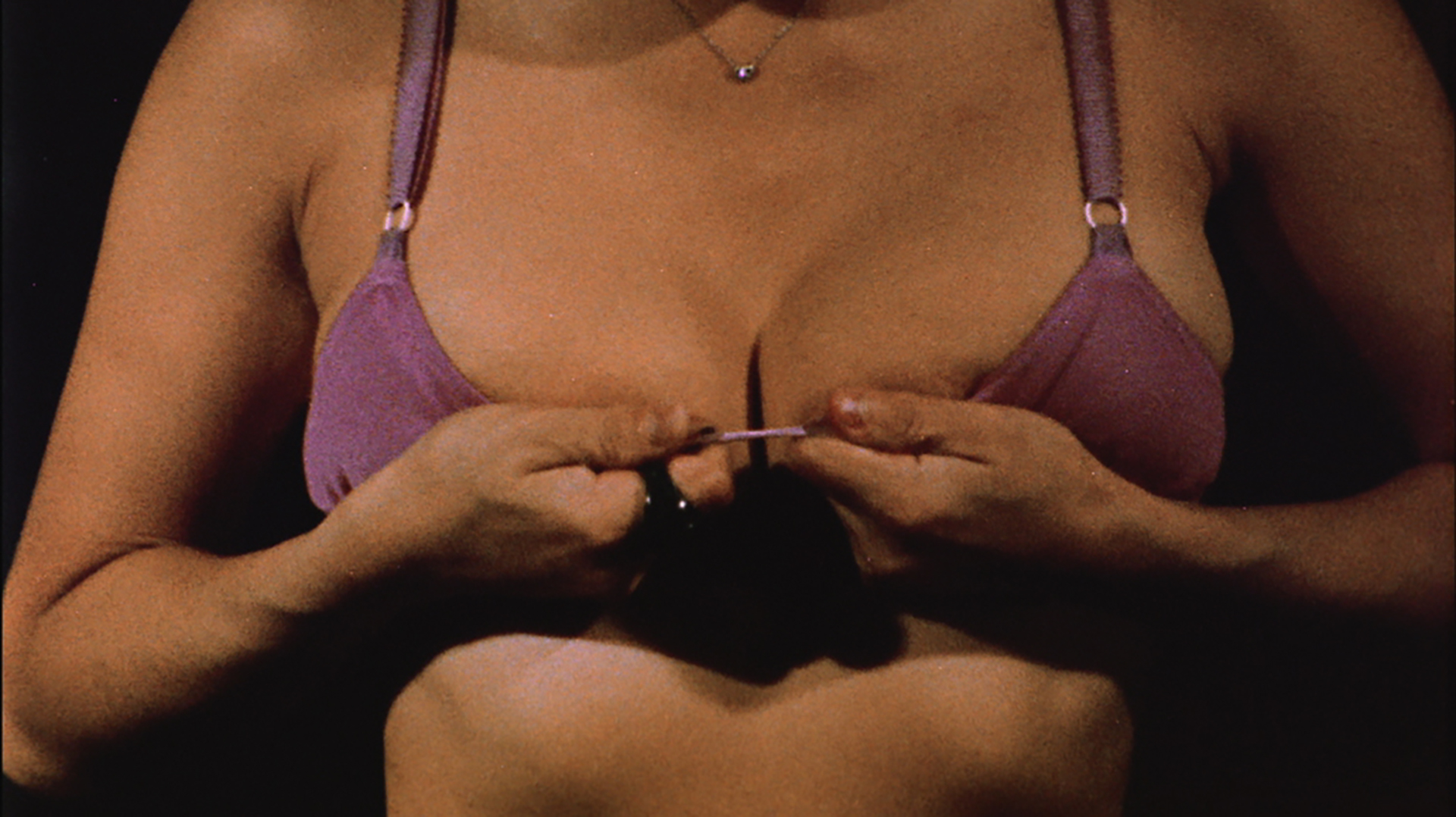
Freedom is a response to second wave feminism. In this very short video, we see Ono struggling to escape from her bra, from physical constraint on her body. In her 1972 manifesto, The Feminization of Society, she expanded on the idea, making her feminist analysis clear. “This society is the very society that killed female freedom: the society that was built on female slavery,” she wrote. “If we try to achieve our freedom within the framework of the existing social setup, men, who run the society, will continue to make a token gesture of giving us a place in their world.”
A collective response to the migrant crisis
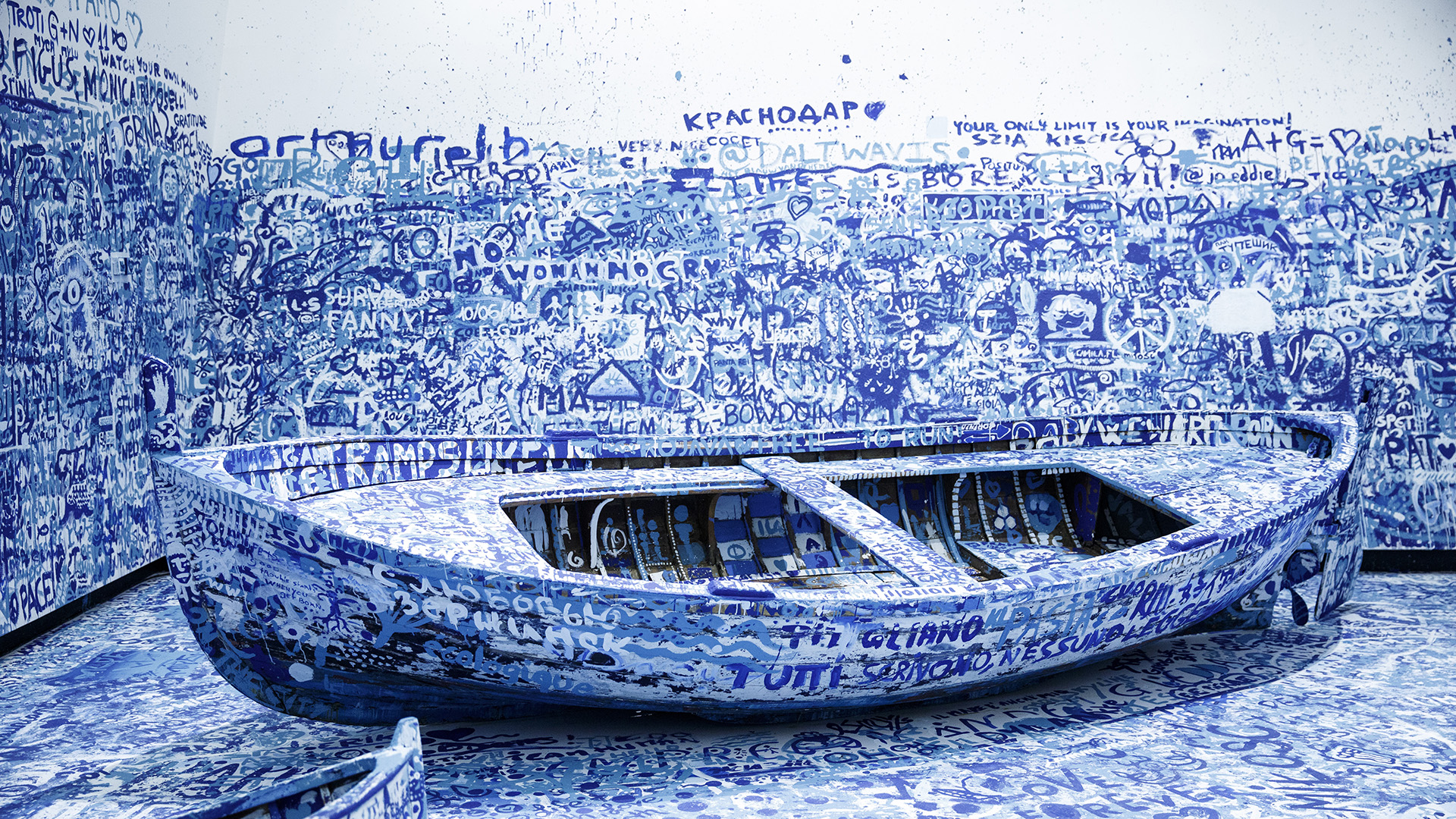
Created in 2016, in response to the migrant crisis in Greece, Add Colour (Refugee Boat) is another interactive installation. To begin with, the work is comprised simply of a boat placed within an empty space. The public is then be invited to paint their thoughts, ideas and hopes on the walls, floor and boat.
Having her own experience of displacement due to conflict, Ono was profoundly moved by reports of the struggles facing refugees. “I wanted to share that feeling I had in my heart with the audience and invite them to participate,” she said.
“She wants to invite people to connect together to examine this issue, to reflect on it together. And to create some sense of collective response,” adds de Brún.
‘I can always keep going as long as the sky is above me’
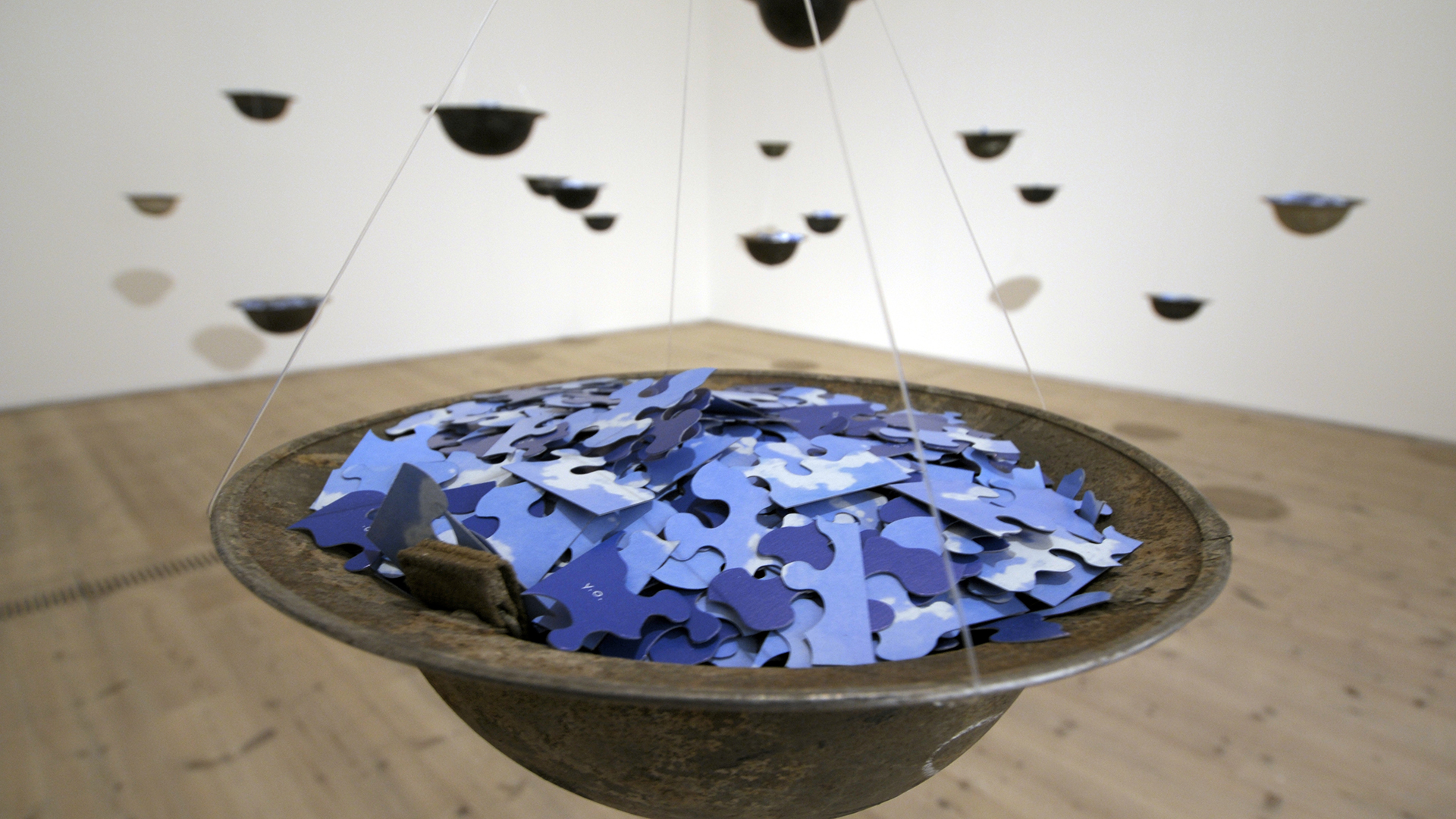
The sky is a frequent motif in Ono’s work. It started when she was a small child during World War Two, says de Brún. She was evacuated from Tokyo to the Japanese countryside with her family. “She was staying in this farmhouse, living in extreme poverty. And she and her brother used to stare at the sky through a hole in the ceiling and imagine all the different types of foods they would like to eat. The sky has always stayed with her as this symbol of endless possibility for imagination, but also for hope.”
Ono explained that feeling of faith in the future, saying, “‘I can always keep going as long as the sky is above me.”
In London, a large collection of World War Two army helmets will be hung, upturned, and filled with jigsaw pieces printed with an image of the sky. Visitors will be invited to take pieces of the sky away with them. This transgression of usual exhibition etiquette is typical of Ono’s desire to involve the audience in the work. It’s a symbol, de Brún explains, “that with a collective agency, we can recreate a sense of hope together”.
Harvesting wishes
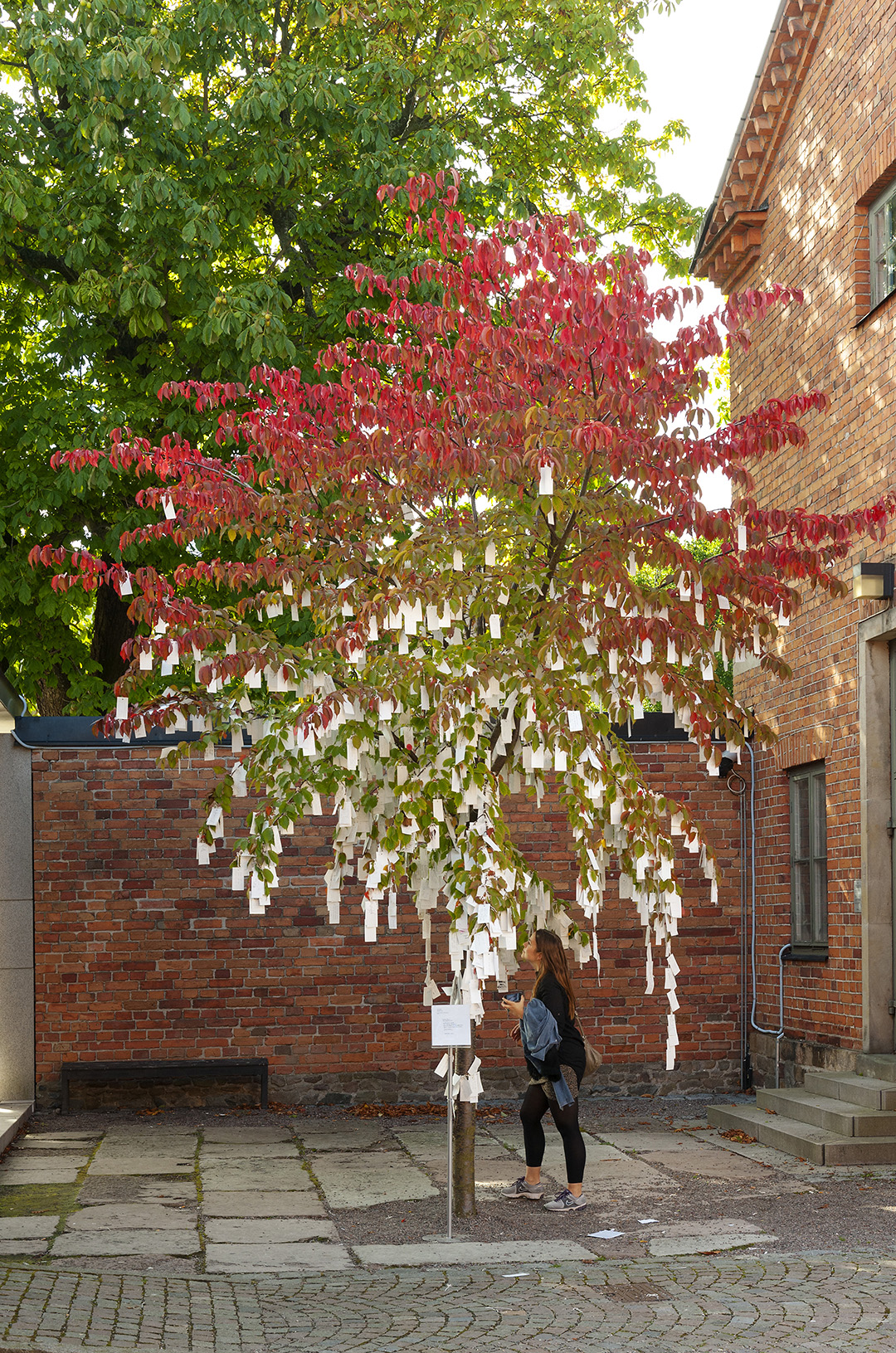
From February until the start of September, everyone who visits the Tate Modern will be greeted by three of Yoko Ono’s famous Wish Trees. Inspired by a Japanese tradition in which people write their wishes on thin pieces of paper and hang them on bamboo branches, these trees are an invitation to collaborate. We are all invited to add our wishes to the living trees, creating a monument to our dreams.
Every single one of the wishes, from every appearance of the Wish Trees, has been harvested and sent to Peace Tower in Iceland, which Ono established in the memory of John Lennon, who was murdered in 1980 aged just 40. There are now more than two million of them. “She talks beautifully about how the wishes combined have this extremely positive energy,” says de Brún. “It is an incredibly poignant and beautiful idea, that we’re all contributing towards something. And that our wishes can have a collective agency. We’re excited to contribute London’s wishes.”
Yoko Ono: Music of the Mind is at the Tate Modern from 15 February-1 September
This article is taken from The Big Issue magazine, which exists to give homeless, long-term unemployed and marginalised people the opportunity to earn an income. To support our work buy a copy!
If you cannot reach your local vendor, you can still click HERE to subscribe to The Big Issue or give a gift subscription. You can also purchase one-off issues from The Big Issue Shop or The Big Issue app, available now from the App Store or Google Play

